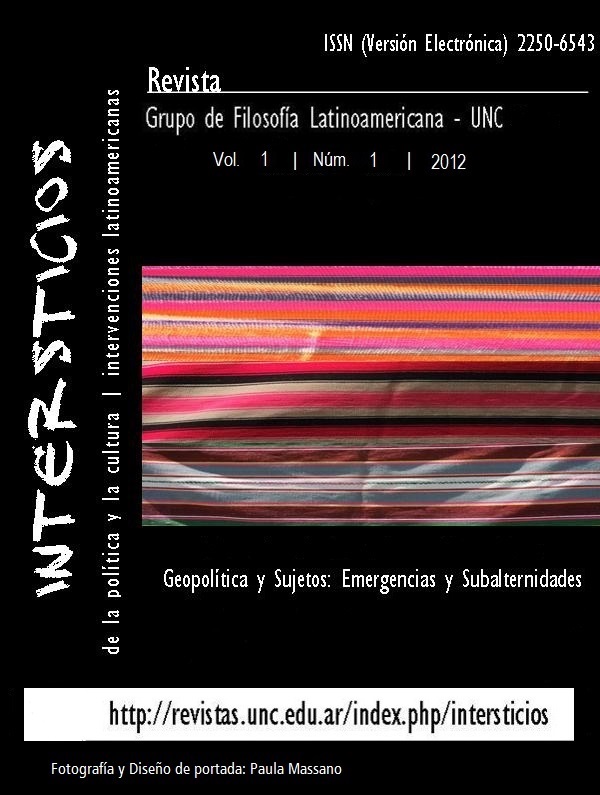ASCO Y POLÍTICA. REFLEXIONES INTEMPESTIVAS SOBRE SENSIBILIDADES SEDIMENTADAS Y DEMOCRACIA.
Abstract
Resumen:
El presente texto intenta indagar sobre la construcción socio-histórica de sensibilidades conformadas para la reproducción de la desigualdad. Llamamos a este fenómeno “Estéticas del asco y de la higiene” ligadas a virtudes morales. Bajo el capitalismo globalizado, esta apropiación enajenante de emociones y sentimientos motoriza la adhesión a políticas para minorías predispuestas a defender racional y “afectivamente” el rechazo, exclusión y explotación de las mayorías empobrecidas.
Palabras claves: desigualdad, emociones, asco, política, emancipación
Abstract:
This text is an attempt to make an enquiry about the socio-historical construction of the sensitivities constituted for the inequity reproduction. We named this phenomenon “Disgust and Hygiene Aesthetics” linked to moral virtues. Under this globalizing capitalism, this emotions and feelings alienating appropriation motorizes the adherence to policies for minorities biased to rationally and “affectively” defend the rejection, exclusion and exploitation of the impoverished majorities.
Key words: inequity, emotions, disgust, politics, emancipation
Downloads
Downloads
Published
Issue
Section
License
Authors who have publications with this journal agree to the following terms:
a. Authors will retain their copyright and grant the journal the right of first publication of their work, which will simultaneously be subject to the Creative Commons Attribution License that allows third parties to share the work as long as its author and first publication in this journal are indicated.
b. Authors may adopt other non-exclusive license agreements for distribution of the published version of the work (e.g., deposit it in an institutional telematic archive or publish it in a monographic volume) as long as the initial publication in this journal is indicated.
c. Authors are allowed and encouraged to disseminate their work through the Internet (e.g., in institutional telematic archives or on their web page) after the publication process, which may produce interesting exchanges and increase citations of the published work (see The effect of open access).


